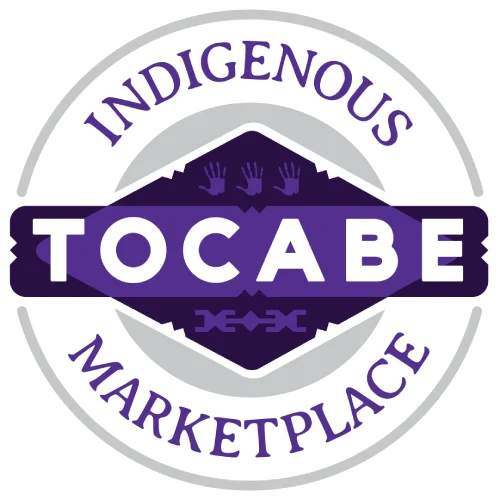Huckleberry Sauce and the Indigenous Culinary Journey
August 31, 2023
Since most of us normally get our groceries from a store, who doesn't love the thrill of using our hunter-gatherer instincts when we discover a patch of wild berries in the woods? You've likely stumbled upon a blueberry or raspberry bush in your lifetime, but have you heard of huckleberries? Huckleberries, a small berry ranging in color from dark red to purple or blue, hold cultural and spiritual significance to Indigenous people and are a staple in many Native American cuisines.
Nutrition
Huckleberries are similar to blueberries in many ways, but are more tart than their well-known cousins. Like blueberries, huckleberries fall into the Vaccinium genus of plants. Huckleberries are an important food source not only to Native Americans, but to wildlife - in fact, the delicious berries are well-known for being a fan favorite among bears and make up almost a third of their diet (1, 2). Huckleberries are loaded with antioxidants and high in Vitamins A and C as well as nutrients known to reduce inflammation, fight heart disease, boost your immune system, and that may even help prevent cancer! (3)
Cultural Significance
Some historical accounts describe berry picking season as a time for celebration, marked by an abundance of food and pleasant weather. Tribes were able to spend more time with family and friends during this time of year, before preparations for winter began (4). Additionally, berry picking was a prime social function, where people of different regions gathered at huckleberry sites to perform sacred ceremonies, sing, dance, and race horses (5).
Harvesting and Use
In August and September, families would set out from their villages in search of these berries, which can be found at high elevations with acidic soil and areas affected by forest fires (5). Families would spend a month or two in these areas collecting enough berries to provide for the family year-round (6). A comb constructed from wood or salmon backbone was used to knock the berries from the bushes (4), where they were painstakingly collected. Some of the berries were consumed fresh but the majority of them were dried out in the sun or slowly smoked over a fire in a deyacing log before being pattied into cakes for preservation (6). Dried huckleberries were traditionally eaten by themselves, made into a pudding, or added to meat stews (6). Nowadays, huckleberries are usually preserved by canning and can be used or purchased in a variety of ways - in cakes, breakfast pastries, syrup or marmalade, or made into a sauce (6), like our Huckleberry BBQ Sauce.
Huckleberries weren’t just a vital food source, they served as medicine in many Native American cultures. For centuries, Indigenous people used huckleberries to treat various ailments, such as heart problems, arthritis, and rheumatism with a tea brewed from the roots and stems of the plant (6).
Threats to Habitat
Every few years, Native Americans oversaw a controlled burn of huckleberry patches to clear the thick forest floor and allow nutrients to return to the soil, similar to the way that prescribed fires are currently used as an ecosystem management method by the U.S. Forest Service (7). Current threats to huckleberry habitat include restrictions implemented on prescribed burning, climate change, declines in the bee population, and invasive species of plants and insects. Fortunately, some Indigenous groups are working with the U.S Forest Service to restore these habitats and reinstitute the practice of prescribed fire in order to ensure the sustainability of huckleberry sites for years to come (8).
Conclusion
It’s unlikely that you’ll find huckleberries at your local grocer - attempts by commercial farmers to cultivate huckleberries have failed due to the plant’s poor adaptability to low elevations, its short harvesting season, and the labor intensive process with limited yields (7). If you want to forage for your own huckleberries in the Pacific Northwest, you’ll need plenty of patience and in some circumstances, a permit! A permit is sometimes required in order to prevent overharvesting of the huckleberry population, and some areas are restricted exclusively for Native harvesting.
But never fear! Despite their elusivity, you can still sample this coveted treat. Our signature Huckleberry BBQ Sauce is made with huckleberries sourced directly from the Muckleshoot Nation of Washington State. Tart, tangy, and slightly sweet, this barbecue sauce is perfect as a dipping sauce, brushed onto meat, or drizzled over nachos!
For many people, food is not just sustenance; it's a comfort, a way to connect with their roots, and a way to experience different cultures. Food plays a vital role in understanding a culture’s history, in the same way that archaeological discoveries and historical artifacts in a museum give us insight into the past. When you support Indigenous harvesting and farming, you contribute to the preservation of culture, economic stability, and the advancement of food sovereignty in native communities. For every two products sold, Tocabe gives back! Click here to learn more about how shopping at Tocabe's Indigenous Marketplace makes an impact.
Liquid error (sections/blog-post-feed line 4): comparison of String with 0 failed
- Choosing a selection results in a full page refresh.
- Press the space key then arrow keys to make a selection.
